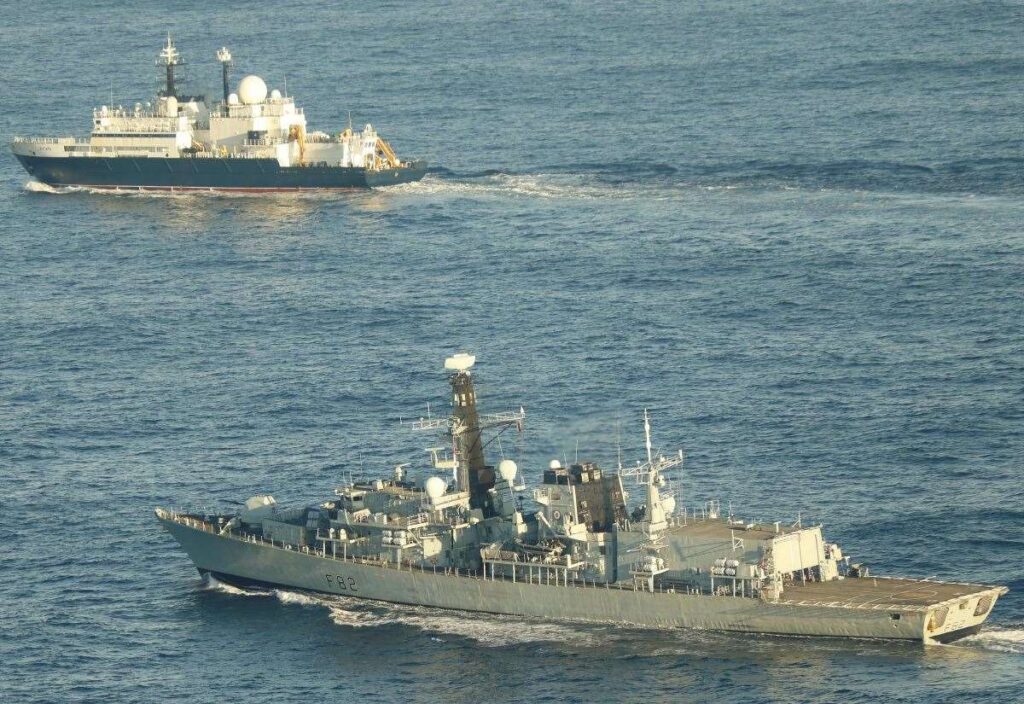A Royal Navy nuclear-powered submarine was deployed to warn off a Russian spy ship operating in the English Channel, the government has revealed.
The hunter-killer submarine surfaced close to the Russian vessel The Yantar which was loitering over critical undersea cables.
The first incident occurred in November, but earlier this week, the Yantar returned to UK waters and the Royal Navy’s rules of engagement were changed to allow warships to sail closer to the spy vessel to monitor its activities, the Defence Secretary, John Healey, said in a Commons statement.
In a direct message to President Vladimir Putin, Mr Healey said: “We see you, we know what you’re doing and we will not shy away from robust action to protect our country.”
Mr Healey said the Yantar was being used “to gather intelligence and map the UK’s critical underwater infrastructure.”
He said the Yantar had been “loitering over UK critical undersea infrastructure” and said: “To deter any potential threat, I took measured steps as part of a clear direct response to the Russian vessel.”
RAF maritime patrol aircraft, the minehunter HMS Cattistock, the offshore patrol vessel HMS Tyne and the surveillance ship RFA Proteus were all deployed “to shadow Yantar’s every movement.”
Mr Healy said: “Russia remains the most pressing and immediate threat to Britain, and I want to assure the House and the British people that any threat will be met with strength and resolve.”
After the November incident, when the Yantar was intercepted by an Astute-class nuclear submarine, it left UK waters and sailed to the Mediterranean.”
But it came back this week and has been shadowed by the Royal Navy frigates HMS Somerset and HMS Tyne.
Mr Healy said: “Yantar entered the UK exclusive economic zone about 45 miles off the British coast on Monday.
“For the last two days the Royal Navy has deployed HMS Somerset and HMS Tyne to monitor the vessel every minute through our waters.
“So far, the ship has complied with international rules of navigation.”
The vessel had since sailed into the North Sea, he told MPs.
The Defence Secretary said Russia was “dangerous but fundamentally weak,” as he referenced the casualties the country had suffered during the war in Ukraine.
The shadow defence secretary, James Cartlidge, welcomed the change to the Navy’s rules of engagement, saying: “It sends a powerful signal to Putin that we will not be intimidated and that if his aim is to keep pushing the boundaries of malign activity in our waters, we will respond.”




